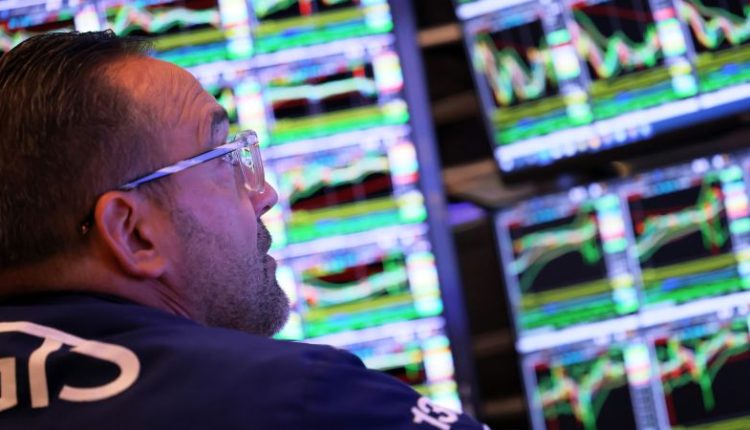A version of this story first appeared in CNN Business’ Before the Bell newsletter. Not a subscriber? You can sign up right here. You can listen to an audio version of the newsletter by clicking the same link.
After roaring higher for most of this year, the rally in tech stocks sputtered in August as investors grew increasingly worried about how long the Federal Reserve will keep interest rates high.
The pain in tech could continue.
Strong economic data in recent months has investors betting that the Fed will keep interest rates higher for longer. Minutes from the Fed’s July meeting released earlier this month revealed that officials worried over whether inflation would cool further without additional easing in the economy and labor market.
The odds of another rate hike later this year or early next have increased over the past month, even though the majority market view is still (narrowly) that the Fed is done. Hopes for a rate cut have been pushed back to May 2024, at the earliest.
The yield on the 10-year US Treasury note closed at about 4.32% on August 21, its highest since early November 2007. The same day, the 30-year yield notched its highest close since late April 2011 — about 4.46%.
That yield spike put pressure on stocks, since investors tend to favor bonds when they have attractive yields. Higher yields also mean companies will need to pay more interest on their debt in the future, eating into future cash flows.
Sustained, lofty yields could particularly pose a problem for tech stocks, which often trade at a premium because of the promise of rapid growth.
Any sell-off in tech could reverberate across the broader market, since those stocks are largely responsible for propelling this year’s rally.
Already, a cooldown in the tech rally has weighed on stocks.
The Nasdaq Composite index is on pace to notch its worst monthly performance this year and break its five-month winning streak. The benchmark S&P 500 index is also on track to snap a string of monthly gains for the same duration.
Still, some tech bulls aren’t deterred by the possibility of higher rates.
Ivana Delevska, founder and chief investment officer of Spear Invest, says she expects strong earnings from tech companies to offset potential pressure from elevated yields.
Her firm’s largest position is Nvidia, which has soared more than 200% this year largely on artificial intelligence enthusiasm. Spear also invests in other chipmakers such as Advanced Micro Devices and Marvell Technology among other tech names.
While stocks, including tech, have rallied a little again in recent days on cooler-than-expected economic data, two pieces of important economic data later this week will test the market: The Personal Consumption Expenditures price index for July, expected Thursday, and Friday’s August jobs report.
The US economy grew more slowly in the second quarter than previously estimated. That’s a good sign for the Federal Reserve, which is attempting to cool demand to bring down price increases, reports my colleague Bryan Mena.
Gross domestic product, the broadest measure of economic output, rose at an annualized rate of 2.1% in the second quarter, according to the Commerce Department’s second estimate, released Wednesday morning. That’s a slightly slower pace than the 2.4% the department initially estimated.
The second estimate factored in greater consumer spending, government outlays and exports, compared with the initial estimate. Meanwhile, business investment and inventories were revised lower. Business investment — referred to as nonresidential fixed investment — was revised to a 6.1% rate of growth, compared with a 7.7% rate in the first estimate.
Read more here.
The latest aviation employees to vote in favor of a strike are American Airlines flight attendants, reports CNN’s Gregory Wallace.
The union representing them, the Association of Professional Flight Attendants, reported a 99.47% vote in favor of a strike authorization with 93% of union membership casting ballots.
“We’re pushing back and we’re fighting corporate greed, and corporate greed is alive here at American Airlines,” union president Julie Hedrick said Wednesday. The union says it represents more than 26,000 workers.
“We’re proud of the progress we’ve made in negotiations with the APFA, and we look forward to reaching an agreement that provides our flight attendants with real and meaningful value,” an American Airlines spokesperson said in a statement.
The vote doesn’t mean a strike is imminently expected, however. Airline workers and their employers face a series of lengthy steps before any actual strike could take place.
Read more here.
Read the full article here

